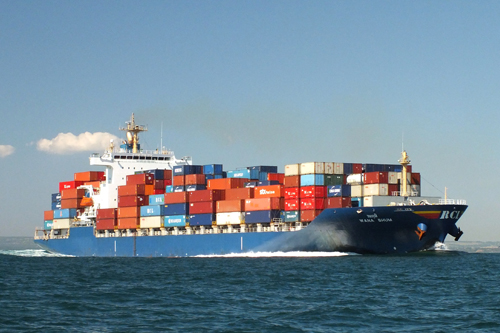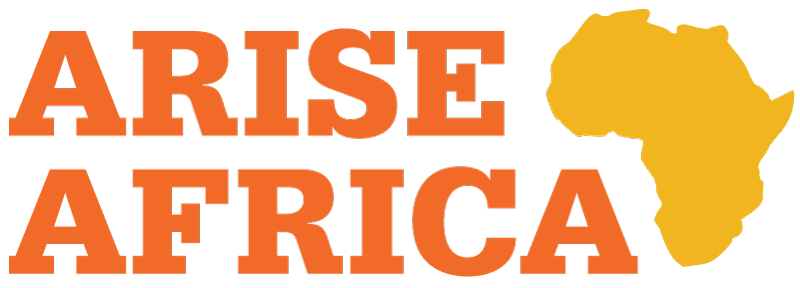
Are all donations really a good thing?
Recently we have been contacted by a few organizations that want to help ship food and other items over to Zambia in an effort for us to be able to help and feed more children. Although this sounds like a home run for us, you might be surprised that although the offer is very generous, we typically say no. And let me explain our philosophy.
I want to first of all say that in no way am I trying attack people and organizations that are doing this. But I do ask people to really look at the big picture before they get involved with helping others.
Arise Africa has spent countless hours learning about boosting the economics of a third world country. If we are really focused on ending poverty and helping people have lives that God desired for them than we have to attack poverty on all fronts, right? When unemployment is 70 – 80% at times how do we boost the economy and not hurt it? A few weeks ago I was having a conversation with a man by the name of Robert Doar who is a Morgridge Fellow in Poverty Studies at the American Enterprise Institute. Let’s just say he studies poverty for a living and has been for years. Robert kept encouraging me in what we were doing in Africa and continued to say to me “Alissa if you can help their economy and provide as many jobs as possible that’s the key to ending poverty, teach them to provide on their own and get them to tools to do that and you are doing great!”
How do we help increase more jobs to people in these countries that hopefully one day the exact children we are helping have jobs?
We feel this is a prime example how: Arise Africa strives to purchase food and other items we need with local men and women and farmers who sell these items in their stores, markets, and farms in Zambia. Let’s just take food for an example. What this does is not only provide food for the children we are helping at our schools or elsewhere but it also provides income which is food for the people selling it. It provides them a job, it keeps their job secure, and it keeps them from being jobless and having to beg for food themselves. Local women in the markets we buy from use our money to feed their own children and pay for their kids to go to school. If we were to ship donations in from organizations, we would wipe out an entire economic level of people who benefit from us. We have a farmer who we get all our chickens and eggs from, and we are some of his biggest sales weekly. He can count on us, we are always there and needing meat. Through Arise Africa purchasing food locally it provides jobs. Not only the farmers themselves, but the people who work for them. How can we expect the economy of Zambia to improve if we aren’t purchasing local? If we want to encourage individuals to be self reliant and sufficient, we have to provide the opportunities too. We are trying to teach people how to stand on their own two feet.
Let me be the first to say that Arise Africa doesn’t buy everything we need in Zambia. If you were at my house a week ago you would have witnessed me packing a massive box that was getting shipped to Zambia on a container ship.

What was in that massive box I was packing was a brand new basketball goal for the kids in the Arise Home (it is a secret don’t tell!) for Christmas. In three months after crossing the Atlantic Ocean and going through port in Namibia the goal is for the goal (get it goal/goal ha ha I digress so fast) to make it to Zambia. You might ask why I went to ALL this effort to get a basketball hoop over there that cost me 4 times as much as the goal itself to ship?! Because they don’t sell basketball hoops in Zambia and can you imagine the looks on the kids faces when they see they have one?! And we have had quite a few made by welders over there, and let’s just say they are sub par. After purchasing the goal I then opened it and filled it with other items we pack and take ourselves over to Zambia, which in this case were books. Yes heavy Christian books. See, when you ship stuff there is no weight limit, just a size limit, so I stuffed that box with everything I could. Books in Zambia are rare and about three times the price they are in America and Christian books are nowhere to be found. Therefore we make exceptions to our “buy local” rule. DISCLAIMER: yes if you look closely at the photo you might see fireworks in there that were purchased in America. I have no comment about the illegally packed fireworks other than I strongly feel every child in the world deserves a proper New Years, which involves fire works in my opinion. (This is a personal opinion not an Arise Africa opinion)
Arise Africa makes exceptions for things that also are not made well in Zambia. For example we have learned that door knobs are imported from China to Zambia and are terribly made. Imagine how much wear and tear a door knob gets in your home. Now imagine the Arise Home, there are at least 24 hands in that home, grabbing the door knob and our kids are kids, they don’t treat things very “lovingly” at times. The Arise Home door knobs don’t last, like not even a week. It looks like our children have chain saws as hands if you saw our doorknobs. They are broken in half, torn out of the door etc… (don’t get me started on the toilet seats in the boys bathroom, that’s a whole other blog post) Therefore we have decided to replace our door knobs with American made doorknobs that can withstand the brutality that the Arise Home provides. We really should be a durability product testing lab for companies, we could make major money because I promise you our kids can destruct anything in ten minutes.
When the Arise Home was getting built, we were offered by a company in the USA to ship all the furniture over there on containers. Once again this was a very very generous offer. We choose to hire a carpenter and welder to make all of the furniture in Zambia. We gave them work for months and months. They had never had someone come to them and ask for ten metal bunk beds to be made! They were able to increase their shops and staff because of us. They had enough profits to purchase better equipment which in return gave them the ability to make things quicker and better and boosted their business forever. We hired local women in the markets to be our seamstresses and make all the kid’s bed spreads and couch cushions. We provided labor and jobs for so so many people. The sad thing is folks, these people were BEGGING for work, and were beyond grateful to us for using their services.
The cost that people spend to ship food and items across the oceans is astronomical. To ship one basketball goal was $536. How much is an entire 20 or 40 foot container? We are talking $15,000 – $30,000 easily. That doesn’t even factor in how much the items in the container cost that you ship. Now imagine how much food you could buy in Zambia and the kids you could feed with the shipping costs alone and what that would do for their economy? Is it really smart to use hard earned dollars to pay for shipping when the item you are shipping can be bought in the place you are sending it to? If your aunt lives 500 miles away and she needs food and cannot afford it herself are you going to go buy heavy rice and food and package it up and pay to ship it to her? Or are you going to write her a check and put it in the mail?
In theory these offers seems like a no brainer right?! Get as much food as you can to feed kids. But we feel that to make a long lasting impact and help the country of Zambia stand on it’s own two feet, this isn’t helping them, in fact it is hurting them. This is a hard pill to swallow for some Americans, and we understand that. But everyday I try to look at the bigger picture and am working to put myself out a job. That happens when poverty doesn’t exist.
There are some areas of the world where shipping food or goods in makes sense. Maybe there is a drought or floods that have wiped out all the local farming. Maybe there was a war and it wiped out all the available shops to purchase from. Look at Haiti after the earthquake, they needed many many things brought in. Maybe what you are shipping just doesn’t exist in that country.
We want to be responsible and aware of our impact in Zambia on ALL levels. We want to improve the standards of living for all. And we don’t want to spread materialism issues or hurt their economy any more than it already is. That is why we are so very careful to take on any project and closely evaluate the impact we have.
We don’t do everything right, in fact I know some would argue that this exact blog post isn’t correct. And that’s OK. We appreciate the generous offers, we really really do. This isn’t to say organizations that are doing this aren’t making an impact. We have chosen to not partake in this. That’s not to say we are trying to point fingers at those who do. I get many questions about this and wanted to express our side on the issue, that’s all.
– Alissa
